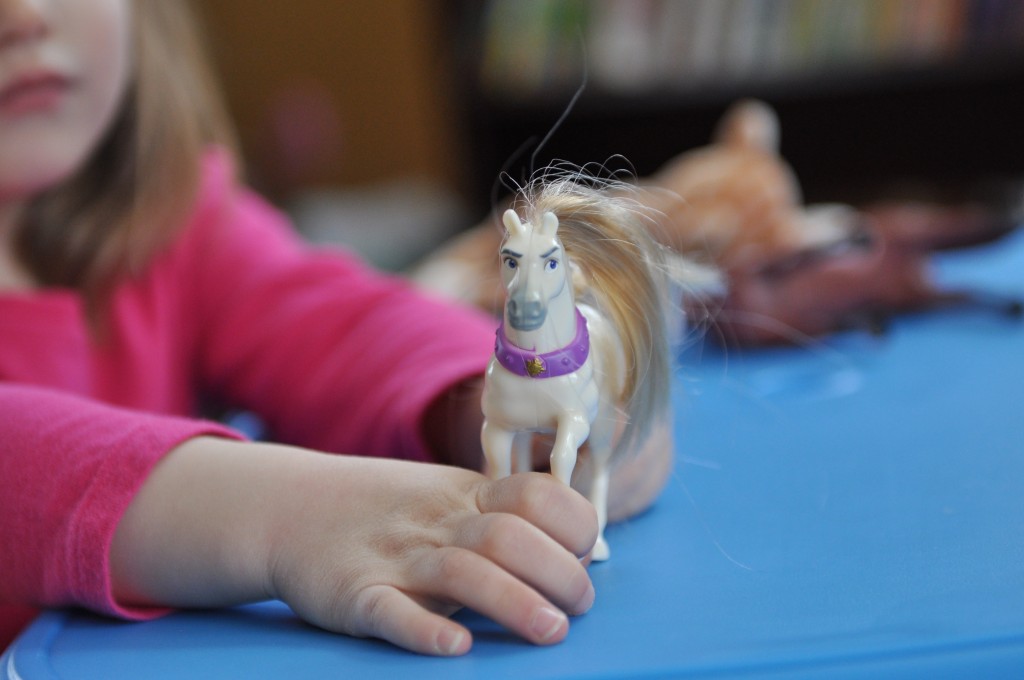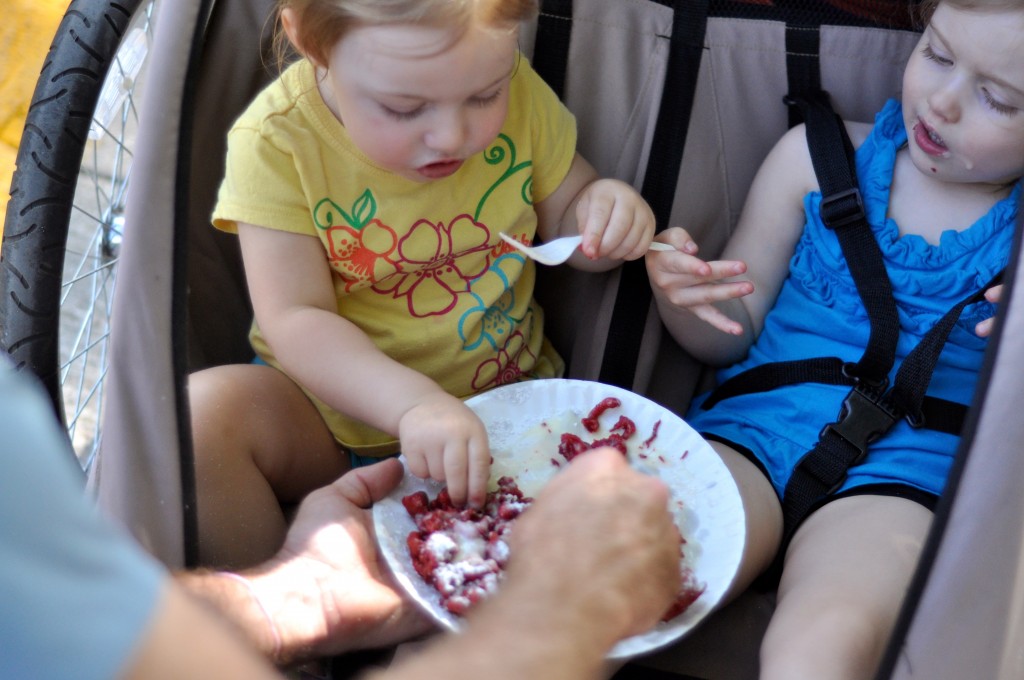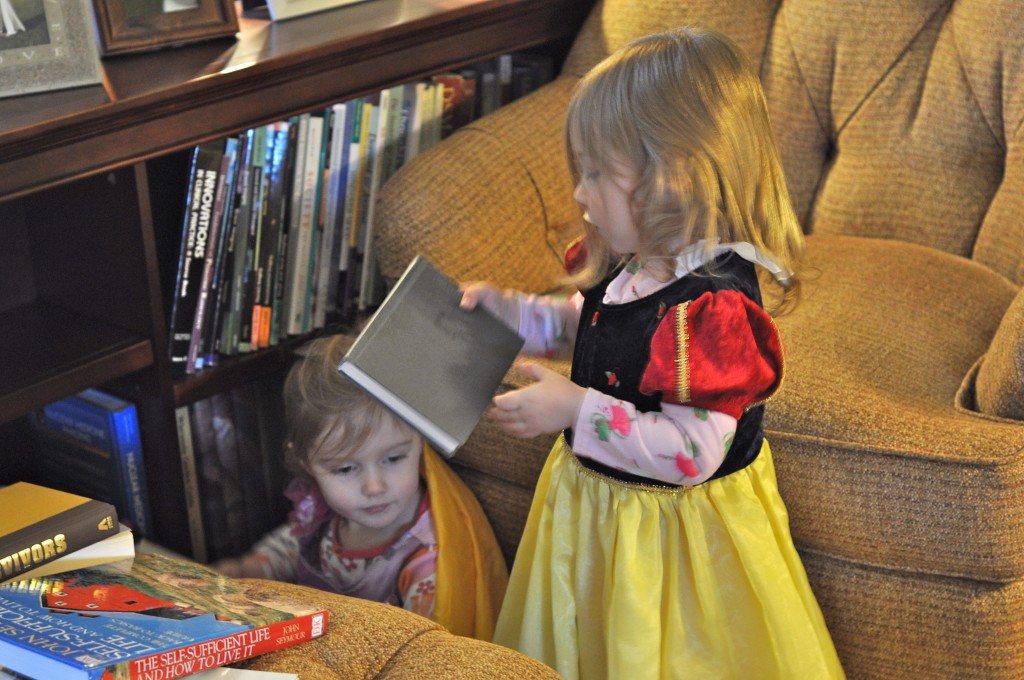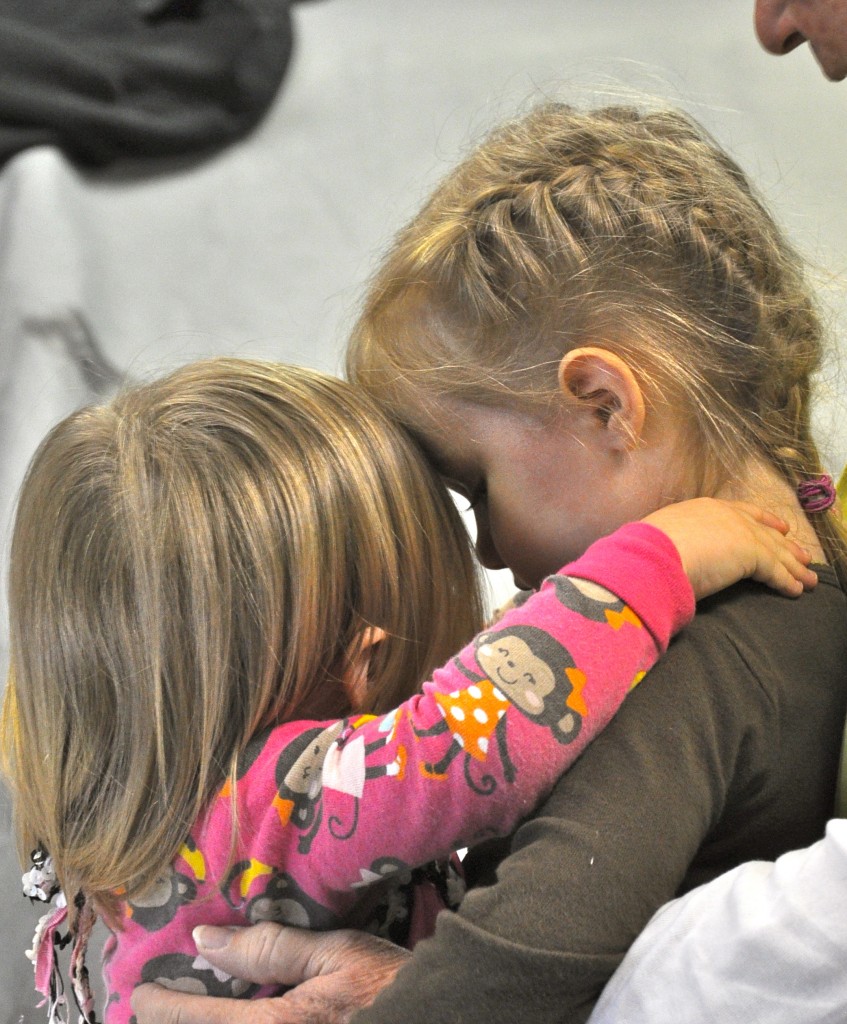Yesterday I read an article called “Why I Don’t Make My Son Share.”
It was an interesting read. For the most part, I like what this mom had to say. I agree with a lot of her points. In a nutshell, she talks about her son’s school’s “sharing policy” in which kids are not required to share an item while they are still playing with it. If a kid wants a toy that someone is playing with, he or she has to wait until the playing kid is done. Makes sense. I’ve never really thought of myself as having a “sharing policy,” but I do typically use this rule with my kids (except for the few hot items that we only have one of that they occasionally both want to play with NOW, then we have to take turns).
Reading the article got me to thinking about sharing. The author of the article mostly wrote about the disservice to children if we give them the idea that they “can have something that someone else has, simply because [they] want it,” and the title says she doesn’t make her son share.
As I said, I mostly agree with what she says about not making kids give a toy that they are actively playing with to another child just because that child wants it. But there’s so much more to sharing that I want to teach my kids.
Example:
If I was using something, say my sunglasses on a really sunny day, I would find it odd if another adult came up to me and randomly asked me to wear them. And in many instances I probably wouldn’t give them up, particularly to a stranger. But, sometimes I have an extra pair in my bag or car. I’d happily lend those to someone else who forgot a pair. In fact, I’d probably offer them without even being asked if I saw that someone needed them. That’s sharing. If I decided to put on a baseball cap (which I never do, it’s just not a good look for me, but for the sake of example…) and didn’t need my glasses anymore, I’d surely let someone else use them. Thats sharing. And if, for some reason, another person needed my sunglasses more than me, I’d most likely give them up. I always offer my sunglasses to my husband when he’s driving my car and he’s forgotten his. He never takes me up on the offer. I can’t imagine why.
But even so, that’s sharing.
To me, teaching my girls about sharing doesn’t mean that I tell them that they have to give a toy that they’re actively playing with to another child on demand. It means that I teach them about the basic concepts of “this is mine, but I’m not using it right now, so you can play with it,” and “let’s play together,” and “here’s one for me and one for you.” It’s helping them to see that other people have feelings and wants and needs, and learning ways that we can share what we have with others. It’s learning to not being greedy and selfish and self-centered, which is kind of hard for them right now because they’re naturally egocentric at this age.
I think sharing is a big part of what helps my girls to play so well together much of the time. Not that I have the answer to sibling harmony, because we certainly have our fair share of fights here.
But I think not forcing them to give their toys to each other arbitrarily helps to minimize resentment. In addition to not making them give each other the things that they are playing with at the moment, when they buy something with their own money or receive it as a gift, they are allowed to think of that thing as their own and to decide whether or not to let others play with it. Miss saved her allowance money and bought a Snow White dress last summer that Lass loved. At first when Lass asked to wear it, Miss said “no.” I didn’t force her to let her sister wear it, but the same rule applied to Lass’s Cinderella dress she had gotten for her birthday. After a very short while, Miss began allowing Lass to wear her dress, and vice versa, and it ceased being something to fight over. It’s not a big deal at all now, and I think this is partly because they were allowed to make the decisions for themselves that they would share their dresses with each other (that and the fact that the dresses aren’t the hot new items anymore).
At the same time, encouraging inclusive play, the idea of “some for me and some for you,” and empathy helps them to have good feelings towards each other. And when sharing is a point of contention between them (or whenever they’re arguing), I try to stay out of it and let them figure it out themselves to the extent this is possible. Sometimes if I just wait a minute, they come up with a solution without my “help.” Letting them decide when and how to share with each other helps them to feel good about it and about each other.
Tonight we went out for dinner and ice cream. Miss chose to have her usual chocolate ice cream flavor. The guy scooped it out for her and then Lass chose something different – chocolate ice cream with a raspberry swirl. Miss nearly had a fit and wanted to change her order. Of course I told her that she couldn’t this time, but that she could ask her sister for a taste of hers and maybe order it for herself next time if she liked it. So she did, and at first Lass said, “no.” No one said anything in response to her refusal to share. A few minutes later she said, “Here, you can have a taste of mine,” and held out a spoonful of her ice cream to her sister. She enjoyed sharing it so much, she gave her several bites and offered some to my husband and me too.
I do sometimes “make” my girls share. Almost never in the sense of making them give up a toy they’re playing with, but sometimes they need encouragement to let other kids play with their stuff even if they’re not actively using it. Sometimes my kids need a reminder that sharing is an act of kindness and we want to be kind to people whenever we can. Sometimes I have to set a limit when one of my girls lets out a blood curdling scream because her sister (or friend) picked up a toy that she was no longer playing with, and then tries to snatch it away. I try my best to do this without being too pushy or authoritarian. It doesn’t always work out that way, but I try.
I think parents can get quite anxious about wanting to demonstrate that we have taught our kids to share and have manners and be empathic and all the other qualities that are socially desirable in adults. In fact, I have never had the experience of seeing another mom pushing my kids to share with hers (as in the examples from the article I linked to above). Usually I see parents bending over backwards to try to make sure their own children are sharing. And then there are the times when I see other parents standing by and watching, not doing a thing, while their kid forcefully takes something from mine, but that’s a whole different post…
Anyway, I’m kind of rambling now. What was my point? Sharing is good? Let’s teach kids to share without forcing them to be doormats? Don’t let your kid be a bully? Something like that. I don’t have a terribly coherent take-home message, I guess. I just got to thinking after reading that article, so I thought I’d share my thoughts here.
Sorry
‘Night.










